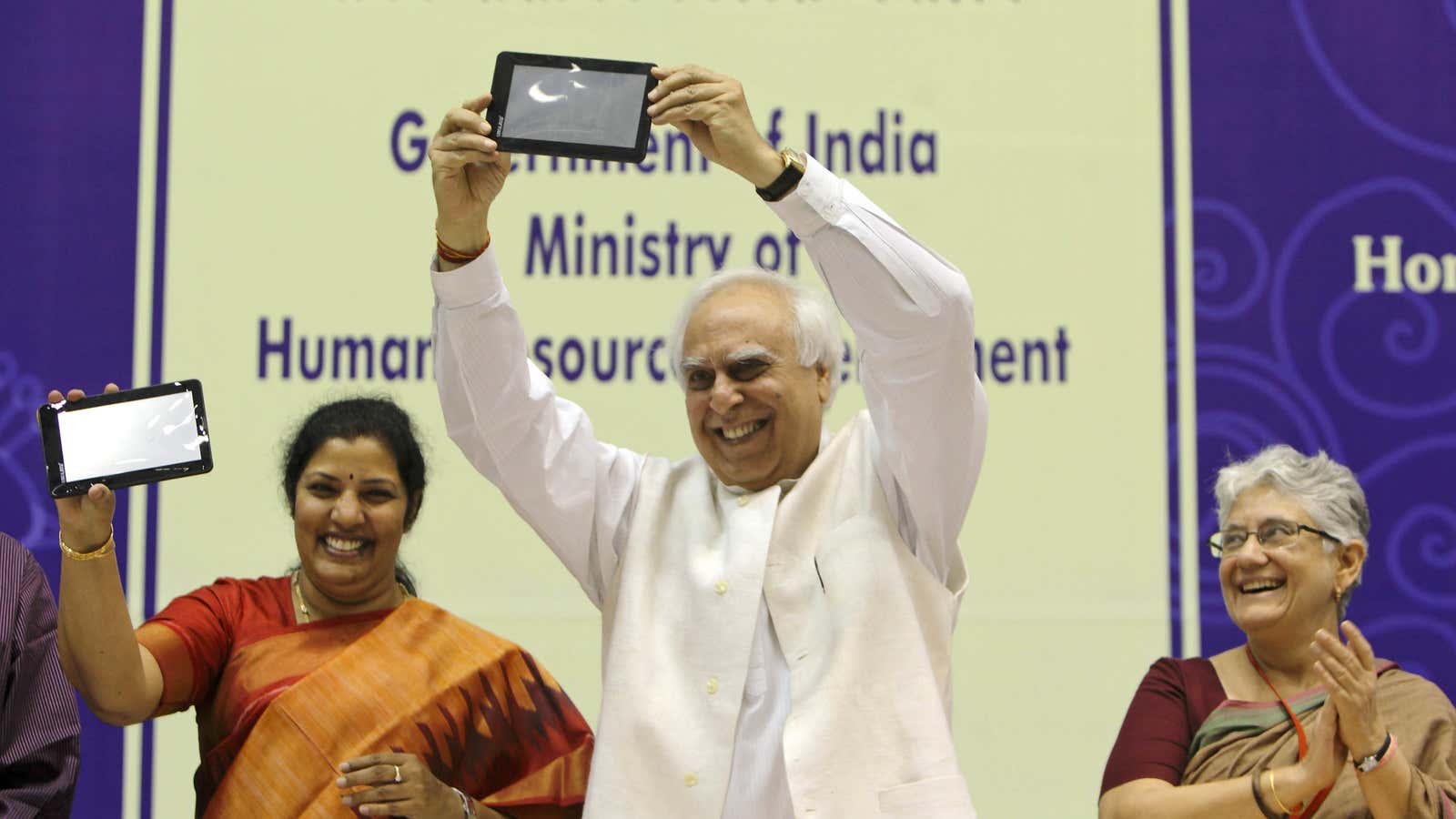We at Quartz have been pretty bullish on Aakash, the ultra-low-cost tablet developed by Datawind for the Indian government. We argued in January that a New York Times piece predicting its demise was premature.
Now it looks prescient—though not for the reasons the Times listed.
Last week, Pallam Raju, the minister of human resource development, whose department is responsible for the project, hinted that the government might abandon the project. “Let us not get obsessed with hardware” he said, adding that students should decide what device they want to use.
Montreal-based Datawind missed a December-end target to deliver 100,000 tablets to the Indian Institute of Technology in Mumbai, which will install apps and prepare the devices for distribution. Now Datawind will almost certainly miss its March 31 deadline as well. Only 17,000 tablets have so far been delivered, with another 29,400 on their way and 23,500 waiting to go. That’s still about a third short of the total.
In statement issued on Saturday Datawind put some of the blame for the delays on “verifications process that customs needed to conduct on the Exemption Certificates for certain components issued by IIT-Bombay.” This is not implausible. Two years ago, the same customs department withheld the trophy for the cricket World Cup. The winners were given a replica.
But by Sunday, minister Raju was gushing all over it: “The Aakash tablet, which is a dream project of the government, has been successful…. It is a fantastic initiative by the ministry to develop [the] Aakash tablet.”
His change of heart may have had something to do with Kapil Sibal, the minister for communications and IT. Sibal is also Raju’s predecessor, the initiator of the Aakash project and all-round political heavyweight. Taking questions on Saturday, Sibal was subtle but effective. “I don’t want to comment on a distinguished colleague of mine. I only know that as far as we are concerned Aakash is alive and kicking,” he said.
Meanwhile, the Indian Express reported this morning that a committee examining the project called it a “game changer” and highlighted its importance for education in India. Another committee is still considering it.
So what to make of all of this? The powers that be in the Indian government have decided that the Aakash project will go on. So it will—until next year at any rate, when general elections will likely throw the ruling Congress party out of office and with it the government’s easy-spending ways. Despite its undeniable troubles with logistics and manufacturing, Datawind may have found the holy grail of startups—a juicy government contract—but as the shenanigans of the past few days have shown, a contract with the Indian government is both a blessing and a curse.
